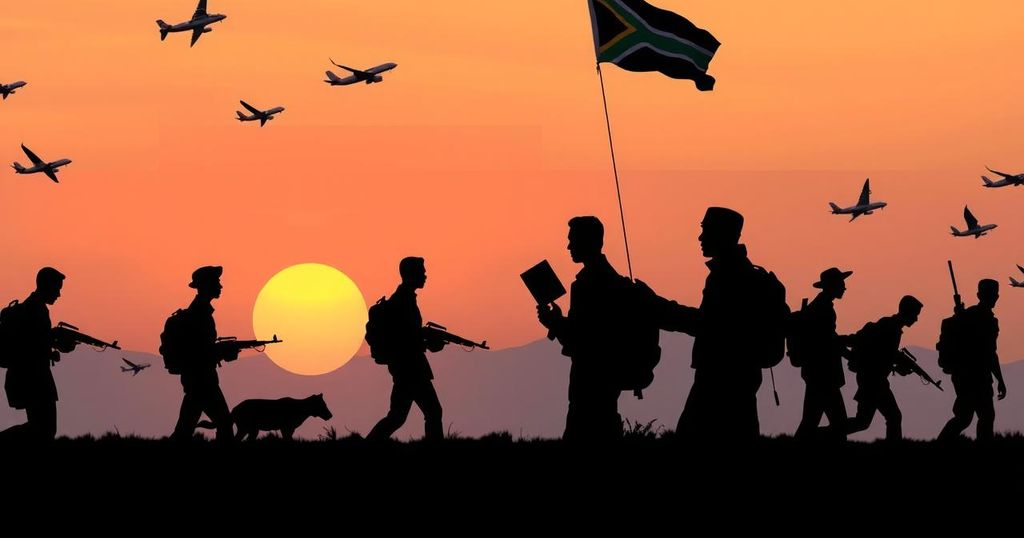Repatriation of Freedom Fighters’ Remains Marks Closure for Families and Nation
The remains of 42 South African freedom fighters were returned from Zimbabwe and Zambia, where they died in exile during the anti-apartheid struggle. The repatriation, aimed at providing closure to families, was received with honor at the Waterkloof Air Force Base in Pretoria. Notable figures among the remains include Duma Nokwe and Florence Mophosho. Deputy President Paul Mashatile emphasized the initiative’s educational importance, with President Cyril Ramaphosa planning a homecoming ceremony for the remains before family reburials.
The remains of 42 South African freedom fighters, who perished in exile in Zimbabwe and Zambia during the struggle against apartheid, were ceremonially repatriated to South Africa on Wednesday. These individuals had fought against white minority rule and their remains were received at the Waterkloof Air Force Base in Pretoria by government officials and family members after being exhumed for reburial in their homeland. This initiative is part of a broader government program aimed at providing closure to families of the deceased combatants, many of whom were involved with underground movements such as the African National Congress (ANC) and the Pan Africanist Congress (PAC). During the apartheid era, many activists sought military training abroad and fled to neighboring countries to avoid arrests by the apartheid regime, which sought to suppress their anti-apartheid activities. The ANC, under the leadership of Nelson Mandela, operated from Lusaka, Zambia after being banned in South Africa. Among those whose remains were repatriated were notable figures such as Duma Nokwe, Florence Mophosho, and Basil February. In a recent Heritage Day event, Deputy President Paul Mashatile highlighted the significance of this repatriation as part of an initiative to educate future generations about the sacrifices made during the struggle against apartheid. President Cyril Ramaphosa is set to host a ceremonial homecoming for the returned remains, which will subsequently be handed to their families for reburial across various locations in South Africa. The government is also planning to repatriate remains of other South Africans from countries such as Lesotho, Ethiopia, Tanzania, and Angola.
The topic of the repatriation of South African freedom fighters’ remains is deeply rooted in the historical struggle against apartheid, a system of institutionalized racial segregation and discrimination in South Africa that lasted from 1948 until the early 1990s. Many activists were forced into exile due to drastic measures taken by the apartheid regime against dissenters. African nations, particularly Zimbabwe and Zambia, provided refuge and support for these freedom fighters, leading to the establishment of military training camps and operational bases for groups like the ANC and PAC. The repatriation initiative aims to honor these individuals and provide a sense of closure to their families, as well as to educate the younger generation about their contributions to democracy in South Africa.
The repatriation of the remains of South African freedom fighters from Zimbabwe and Zambia signifies a crucial step in reconciling the past and honoring those who sacrificed their lives for freedom. This government program not only provides closure to the families of the deceased but also emphasizes the importance of remembering and educating future generations about the struggle against apartheid. Such initiatives play a vital role in preserving the legacy of the freedom fighters and ensuring their contributions are not forgotten within the national narrative.
Original Source: www.independent.co.uk




Post Comment